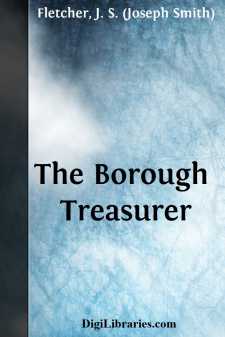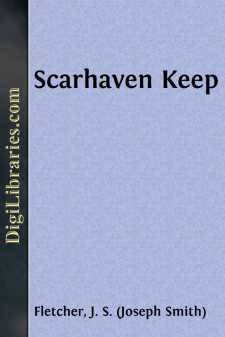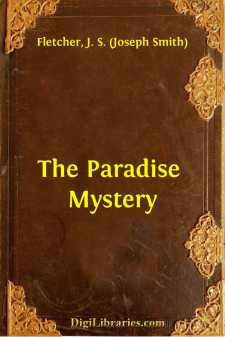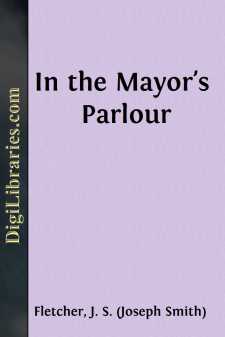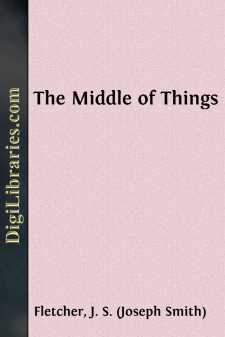Categories
- Antiques & Collectibles 13
- Architecture 36
- Art 48
- Bibles 22
- Biography & Autobiography 813
- Body, Mind & Spirit 142
- Business & Economics 28
- Children's Books 13
- Children's Fiction 10
- Computers 4
- Cooking 94
- Crafts & Hobbies 4
- Drama 346
- Education 46
- Family & Relationships 57
- Fiction 11828
- Games 19
- Gardening 17
- Health & Fitness 34
- History 1377
- House & Home 1
- Humor 147
- Juvenile Fiction 1873
- Juvenile Nonfiction 202
- Language Arts & Disciplines 88
- Law 16
- Literary Collections 686
- Literary Criticism 179
- Mathematics 13
- Medical 41
- Music 40
- Nature 179
- Non-Classifiable 1768
- Performing Arts 7
- Periodicals 1453
- Philosophy 64
- Photography 2
- Poetry 896
- Political Science 203
- Psychology 42
- Reference 154
- Religion 513
- Science 126
- Self-Help 84
- Social Science 81
- Sports & Recreation 34
- Study Aids 3
- Technology & Engineering 59
- Transportation 23
- Travel 463
- True Crime 29
The Chestermarke Instinct
Categories:
Description:
Excerpt
THE MISSING BANK MANAGER
Every Monday morning, when the clock of the old parish church in Scarnham Market-Place struck eight, Wallington Neale asked himself why on earth he had chosen to be a bank clerk. On all the other mornings of the week this question never occurred to him: on Sunday he never allowed a thought of the bank to cross his mind: from Sunday to Saturday he was firmly settled in the usual rut, and never dreamed of tearing himself out of it. But Sunday's break was unsettling: there was always an effort in starting afresh on Monday. The striking of St. Alkmund's clock at eight on Monday morning invariably found him sitting down to his breakfast in his rooms, overlooking the quaint old Market-Place, once more faced by the fact that a week of dull, uninteresting work lay before him. He would go to the bank at nine, and at the bank he would remain, more or less, until five. He would do that again on Tuesday, and on Wednesday, and on Thursday and on Friday, and on Saturday. One afternoon, strolling in the adjacent country, he had seen a horse walking round and round and round in a small paddock, turning a crank which worked some machine or other in an adjoining shed: that horse had somehow suggested himself to himself.
On this particular Monday morning, Neale, happening to catch sight of his reflection in the mirror which stood on his parlour mantelpiece, propounded the usual question with added force. There were reasons. It was a beautiful morning. It was early spring. There was a blue sky, and the rooks and jackdaws were circling in a clear air about the church tower and over the old Market-Cross. He could hear thrushes singing in the trees in the Vicarage garden, close by. Everything was young. And he was young. It would have been affectation on his part to deny either his youth or his good looks. He glanced at his mirrored self without pride, but with due recognition of his good figure, his strong muscles, his handsome, boyish face, with its cluster of chestnut hair and steady grey eyes. All that, he knew, wanted life, animation, movement. At twenty-three he was longing for something to take him out of the treadmill round in which he had been fixed for five years. He had no taste for handing out money in exchange for cheques, in posting up ledgers, in writing dull, formal letters. He would have been much happier with an old flannel shirt, open at the throat, a pick in his hands, making a new road in a new country, or in driving a path through some primeval wood. There would have been liberty in either occupation: he could have flung down the pick at any moment and taken up the hunter's gun: he could have turned right or left at his own will in the unexplored forest. But there at the bank it was just doing the same thing over and over again: what he had done last week he would do again this week: what had happened last year would happen again this year. It was all pure, unadulterated, dismal monotony.
Like most things, it had come about without design: he had just drifted into it....



